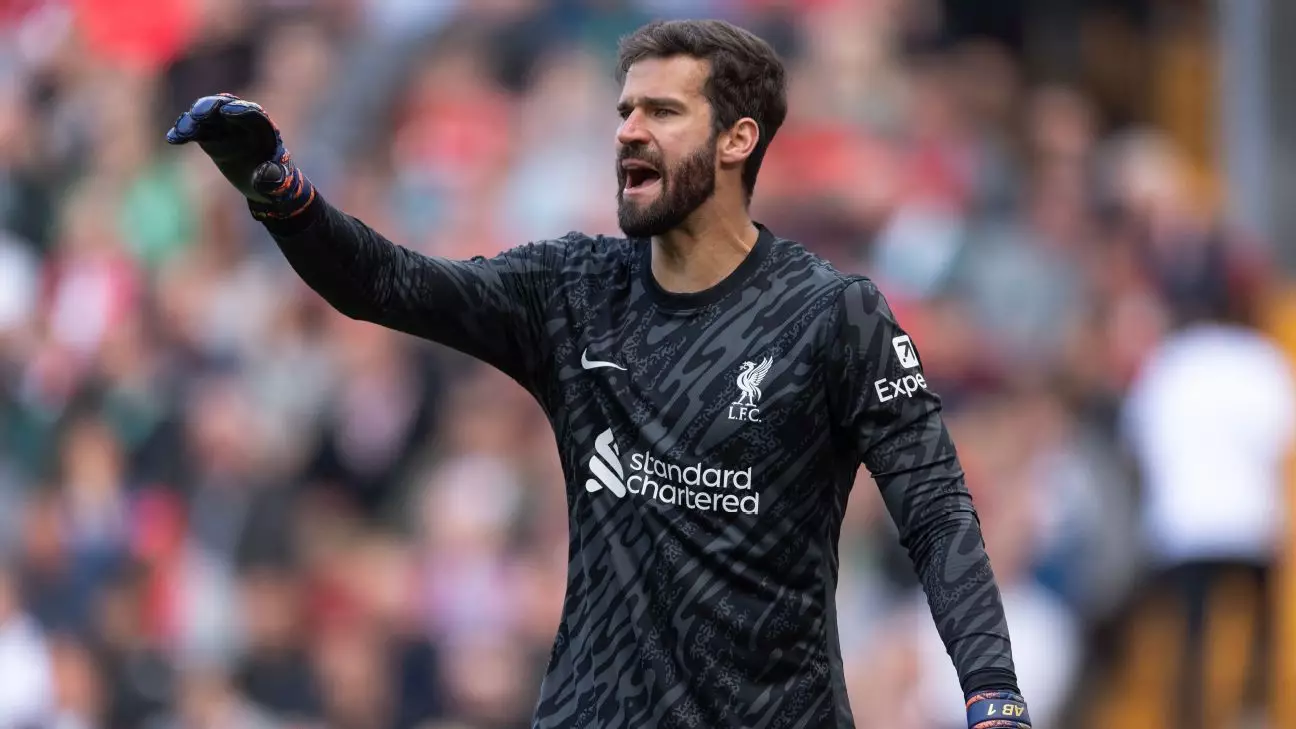The modern era of football is synonymous with intense competition and relentless schedules. As the Champions League prepares to unveil its new format featuring an extended league phase, players are increasingly vocal about the implications of this change. Liverpool’s goalkeeper, Alisson Becker, has emerged as a prominent voice in this conversation, emphasizing the necessity for football’s governing bodies to incorporate players’ perspectives into the decision-making process.
Alisson has raised a poignant concern regarding player involvement in discussions that affect their professional lives. With each team slated to compete in eight matches prior to the knockout stage—two more than in recent editions—the potential for player fatigue becomes an immediate issue. Alisson’s assertion that “sometimes nobody asks the players what they think” underscores a persistent gap in communication between governing bodies and those who actually take the field. The sheer volume of matches raises questions about sustainability in a sport already facing criticisms for its frantic pace.
“How can a tired athlete compete at their peak?” is a fundamental question posed by Alisson in this discourse. As players assume a wide array of responsibilities on the pitch, fatigue can considerably diminish performance levels. The ramifications of chronic fatigue not only affect individual players but also have broader implications for team dynamics and the quality of play throughout the season. Alisson’s call for respect for athletes’ opinions is not merely about individual preferences; it reflects an urgent need to consider how this expanded schedule could dilute the essence of competition itself.
The response from club leadership to this ongoing debate has varied. While former Liverpool manager Jürgen Klopp was outspoken against the congested schedule, his successor Arne Slot offers a more tempered view. Slot acknowledged the excitement of having multiple fixtures to watch on any given night, yet he also raised concerns regarding the physical toll on players. This duality illustrates the complexities surrounding the new format; there is an appreciation for the sport’s entertainment aspect while simultaneously recognizing the underlying challenges it poses for players.
As Liverpool gears up for their inaugural match against AC Milan in this new league phase, the team’s focus must align with the amplified expectations that accompany the extended schedule. Balancing the desire for consistent performance with the demand of more games will be pivotal for players and coaching staff alike. This inaugural clash serves as a crucial litmus test for how well Liverpool adapts to the newly altered landscape of European football.
The dialogue around the Champions League’s extended format raises vital questions about how the sport evolves in response to the ever-growing demands placed on players. Stronger communication between governing bodies and players is imperative to ensure that the integrity of the game and the well-being of its participants remain at the forefront of any future developments.

